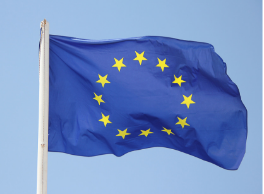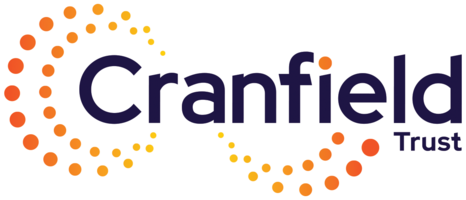
Two and a half years ago in June 2016, I attended an event with a couple of dozen other charities. It was the morning that the result of the Brexit Referendum was announced.
Every single one of the people at that meeting was shocked by the result and all of them were unclear as to what the outcomes for them and their charities might be.
Two and a half years later, little seems to have changed. Many of us are still shocked that David Cameron would have asked the British people to vote on an issue about which 99% (of both sides) were grossly uninformed. Shocked also that a majority of those who voted seemingly failed to consider the potential effect upon jobs, growth, supply chains, and international co-operation regarding law and security.

But we cannot blame the electorate for not understanding the impact of Brexit. The politicians do not understand what might happen, nor do business people, bankers, farmers, retailers or anyone else – Brexiteers or Remainers. Dismantling 40 years’ worth of standardisation, co-operation, simplification and harmonisation is certain to lead to unforeseen and unexpected consequences.
The experts have made dire forecasts about the effect of Brexit, many of which were expected to kick in the day after the poll result was announced. Like all forecasts, they were mostly wrong, some wildly wrong - so should we believe what the doom-mongers tell us?
Just in case you are more inclined to believe the experts, rather than the man in the street or the stranger on Facebook, here are some of the things that might affect charities as a result of Brexit.
Demand
Cranfield Trust works with charities involved in poverty, disability and social exclusion. If the economy suffers, the clients of these charities suffer and the demand for their services increases.
The Bank of England (more experts) forecast in November 2018 that a worst case for Brexit would see a growth in GDP by 2014 which was between 7.75 and 10.5% less than it would have been without Brexit. Their most optimistic forecast suggested that we would only lose out by 1.25 to 3.75%.
Research by the Financial Inclusion Centre (experts again) for the Barrow Cadbury Trust in October 2018 showed that the regions hardest hit by Brexit will be the North East, Wales, Northern Ireland, Yorkshire and Humberside, the North West, and the West Midlands. With existing high levels of household financial vulnerability, these regions are particularly vulnerable to the potential effects of Brexit.
Industries reliant on frictionless supply chains such as automotive and aerospace are already closing plants in the UK to avoid potential border delays, new tariffs and commercial uncertainty – this together with the relative decline in GDP could lead to higher unemployment and poverty and put increased pressure on charities
Particular pressure can be expected on those charities that work with immigrants whether or not they are EU citizens. Whilst research shows that most people have a balanced view, seeing both pressures and gains from migration, prejudice and xenophobia has been displayed more openly since the referendum.
Staffing

The number of European staff employed by charities fell by a dramatic 20% – or 7,800 individuals – between June 2016 and June 2017, even as the sector’s workforce as a whole grew (data source NCVO).
There is no analysis of why these staff left - it may have been the fall of the pound reducing the value of their remittances to their homeland, it may have been the feeling of increased hostility from their neighbours – but there can be little doubt that the Brexit vote has driven out many people for the charity sector as well as the care sector and NHS.
Looking forward, there are proposals that migrants may be allowed to stay if they earn more than £30,000/year. That threshold will rule out many in the charity sector, which has a large number of part time workers and sessional staff.
Funding
Pre-Brexit, there were 139 EU grants available for non-profit organisations. Two of the bigger funds are the European Social Fund and the European Regional Development Fund.

In the period 2014-2020, funding from the European Social Fund (ESF) and European Regional Development Fund (ERDF) is equivalent to €24 per person per year at UK level but this conceals a wide range of Regional funding levels. Wales stands out as receiving the most EU funding per head – more than four times the UK average at €111 per person per year over the period. The next highest are Northern Ireland (€55), Scotland (€45), North East (€41), and South West (€40). In contrast, the South East (€5), East of England (€10), and London (€13) received a fraction of that level of funding per person per year.
According to a report in the Guardian, British charities are in line to lose £258million as a result of the loss of ESF and EDRF funding. So far, there has been little to suggest the government has a plan to protect the voluntary industry against this shortfall. Charities are not even among the 58 sectors that have been consulted on the potential impact of Brexit.
Summary
In summary, more people will need more help, and charities will be needed to provide it. EU funding will be on the way out, and a struggling economy will put further pressure on public spending – affecting direct support to individuals and contract income from public contracts fulfilled by charities. Competition for private funds from individuals, trusts and foundations will intensify further. Against this backdrop, charities will need every bit of help that they can get to consider possible scenarios and set out plans as robustly as they can, so that they can survive and continue to be the providers of services that we all rely on.
We can help
Cranfield Trust is a national charity and the leading provider of free management support and business advice to the UK voluntary sector. The Trust works with a network of project managers and over 1,000 highly skilled volunteer business professionals to deliver free consultancy projects for hundreds of small to medium-sized charities in England, Wales and Scotland. The purpose of this is to support charities to manage themselves and provide their services effectively to their beneficiaries.
The Trust also runs HRNet, a free HR lifeline to charities and social enterprises. It offers specific advice on complex employment situations without expense, as well as regular briefings on employment issues, an information archive, and model documents.
And the Trust provides free Masterclasses for charity professionals and Trustees on topics as diverse as governance, change management, business planning and forecasting.
For further reading about how Brexit could impact on your charity, the Office of Civil Society issued some useful information in a recent newsletter.




